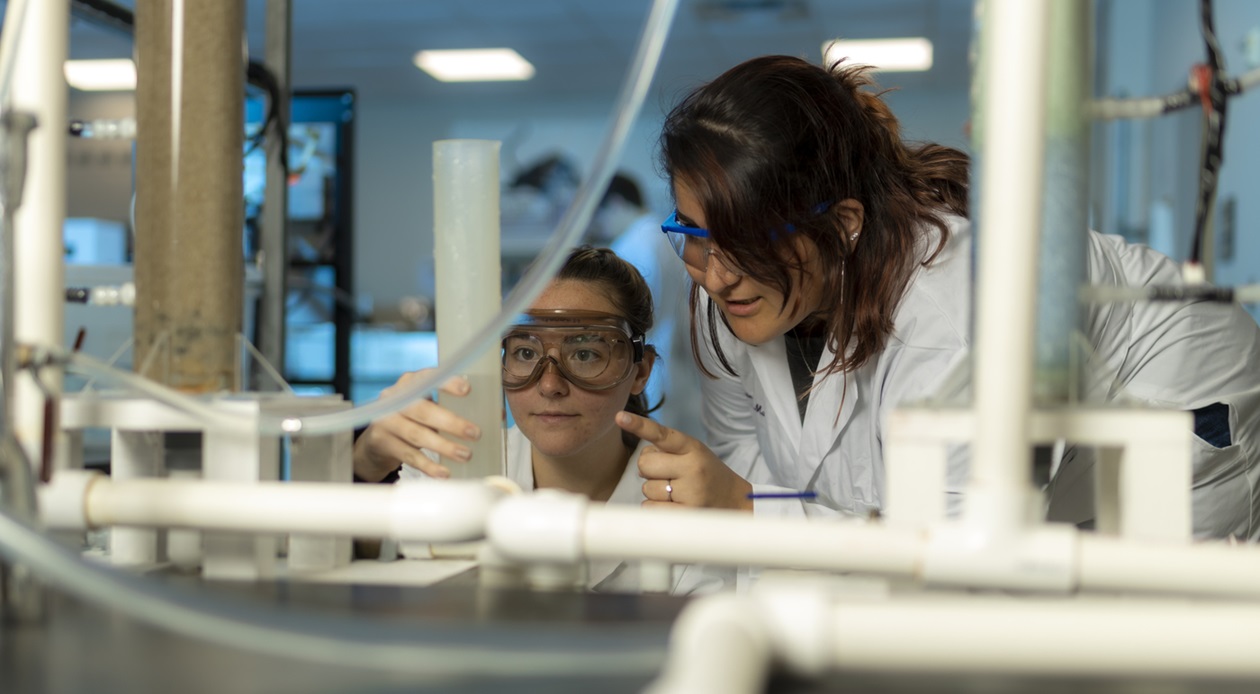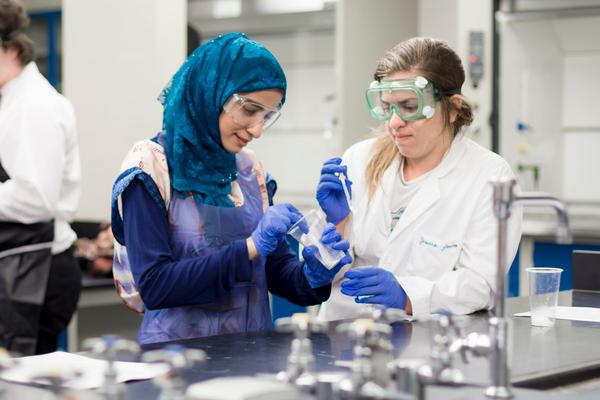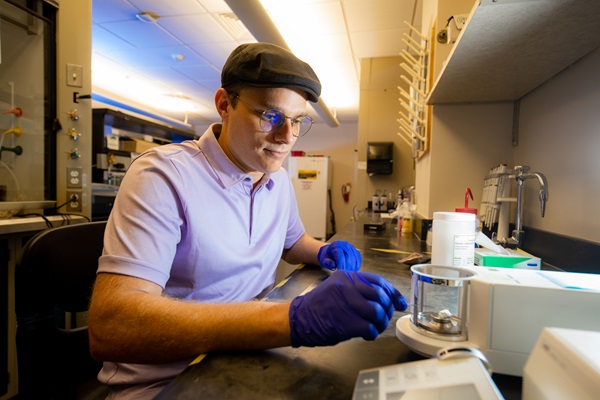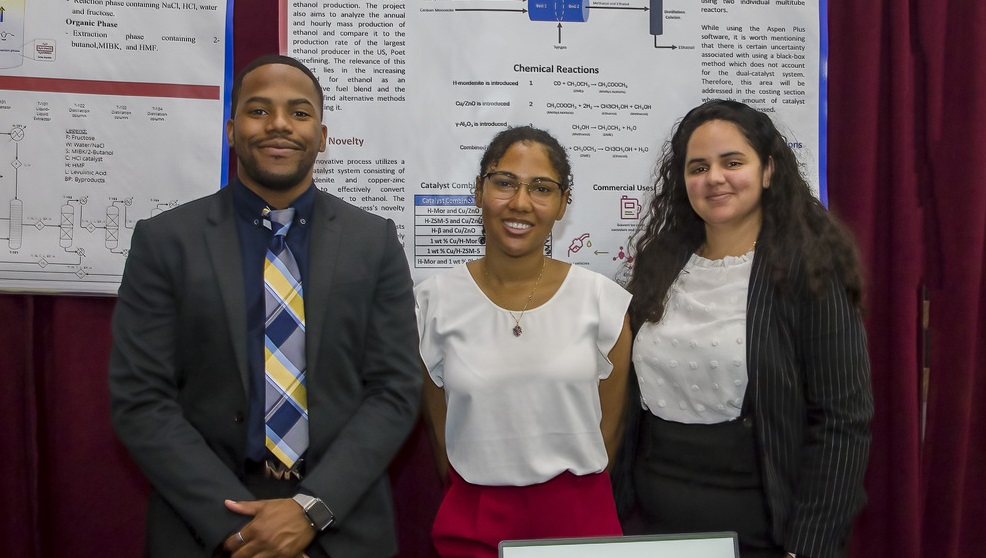Synthesize Your Knowledge and Skills
As a chemical engineering student, you’ll conduct a capstone research project and present it at the annual Student Design Showcase during your senior year. Leading up to this milestone moment, you’ll have spent two semesters putting everything you’ve learned into practice as you plan, conduct and report on your project.
Students have researched topics such as:
- Greener production of a chemical used in everything from cars to pharmaceuticals
- Use of photoelectrochemical cells in carbon dioxide conversion
- Reduction of carbon dioxide in polymer production
- An innovative approach to ethanol production
- Use of wastepaper to synthesize an organic multiuse compound
- A new method to produce high purity biodiesel


 Give to Florida Tech
Give to Florida Tech 



